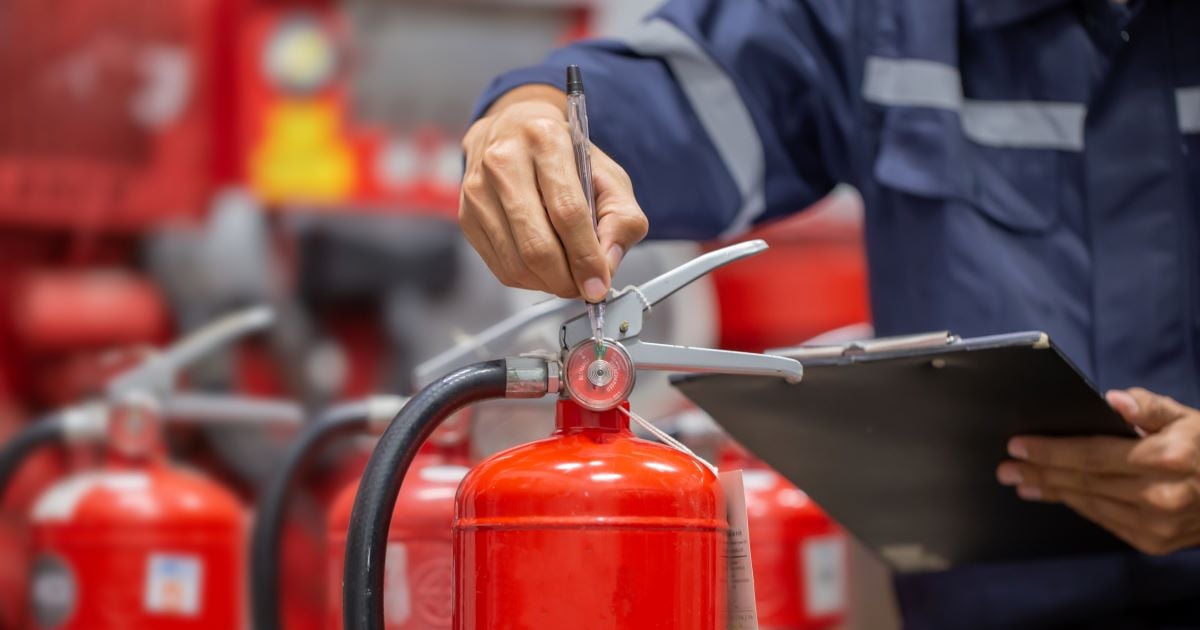Every business in Sydney, fire protection is not just a legal requirement but a vital part of keeping employees clients, customers, and the property secured. Fires can cause massive losses in a matter of minutes. But with adequate safety measures put in place, many of these dangers can be reduced or avoided. Fire inspections and regular examination of electrical systems as well as complying with CFSP standards all contribute to ensure a secure environment.

Fire inspections are why they are the basis of security
Fire Inspections are the first line of defense against potential hazards. Inspections are conducted to ensure that all elements of the building’s fire-protection system are working and up to date. In Sydney, most businesses are required to conduct an inspection every six to twelve months, based on kind of building and council regulations. The inspection can include everything from sprinklers to fire alarm systems to smoke detectors, hydrants, and extinguishers.
Inspections are important since they can reveal concealed issues prior to them becoming dangerous. Although it may not be a big deal that a slight issue in a fire hydrant or a smoke alarm that is blocked could be fatal in an emergency. Regular inspections for fires are a proactive method for business owners to not only ensure they meet their compliance obligations and protect themselves from unexpected disasters.
Test and Tag Testing and Tag
Electrical systems can be a major cause of fires in workplaces. Testing and tagging is therefore an important part of the plan to ensure security from fire. This process involves checking the electrical equipment to make sure it’s safe, functional, and compliant, after which you attach a clear tag that indicates that the product was inspected and passed. This is a requirement that’s often not straightforward to meet. For many companies, it’s a precaution against potential risks.
If not checked the old wiring, faulty appliances, or worn out cables could be a fire hazard. Businesses can lessen the risk of fires by testing regularly and marking electrical equipment. Employees also have confidence that their workplace is safe. This helps create a feeling of confidence and trust in the work place. When combined with fire inspections as well as testing, this complete safety program reduces the risk from multiple angles.
The role of CFSP in ensuring compliance and Certification
In New South Wales, only a Competent Fire Safety Practitioner (CFSP) is able to sign and certify important documents for fire safety, like Annual Fire Safety Statements. The introduction of CFSP accreditation has raised the bar for fire safety by ensuring only qualified professionals assess and verify safety measures. For those who own businesses, having a CFSP implies that reports and inspections are not just standard paperwork but actual evaluations that are conducted by experts.
The job of a CFSP goes beyond simply ticking boxes. These professionals assess the performance and state of fire protection systems and present complete reports. They also confirm compliance with regulatory requirements. Businesses without CFSP certification face the threat of fines, legal complications and even closing if their fire safety measures are found to be insufficient. Working with professionals who are accredited ensures that the fire safety system is being maintained in a proper manner, and all requirements to be in compliance are met.
Fire Safety is a Continuous commitment
Fire safety is a constant requirement for all business owners. Regular inspections and testing of electrical equipment, in conjunction with proper certification by CFSP ensure a safety loop that will never end. Beyond compliance with law This continuous process helps create the culture of safety in the workplace. Employees can be confident that evacuation plans have been formulated Smoke detectors are operational the emergency lighting is checked, and the fire suppression system is ready to be used.
Making fire safety an ongoing process instead of an annual checkbox not only minimizes risk, but also helps strengthen the image of a company. When safety is prioritized, clients and customers feel safer. In the long run, proactive protection against fire can save money through preventing expensive damage such as fines, legal fights or fines. It also shields all those in the building.
Conclusion
Sydney’s fire safety system is an intricate process that includes inspections tests, tagging, and testing and an official certification by an CFSP. Each of these components plays an important role in aiding businesses in complying with rules, but is more important in securing property and people. Safety is an integral part of the business process and is not a secondary consideration. Businesses can comply with their legal requirements and create a more durable and safer atmosphere in the near future if safety is a regular part of daily operations.